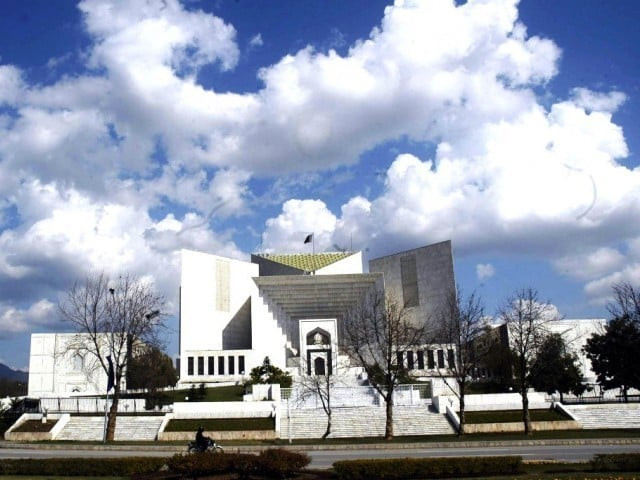Larger bench to review SC order on lab guidelines
Five-judge bench to evaluate Justice Syed Mansoor Ali Shah’s 2018 order on 16th

Chief Justice of Pakistan (CJP) Gulzar Ahmed has constituted a larger bench to review the Supreme Court’s guidelines to the lower courts to ascertain reliability of the reports of the government forensic science laboratories in narcotics cases.
A five-judge larger bench, presided by Justice Maqbool Baqar, will take up the matter on September 16.
According to the cause list, the bench also includes Justice Manzoor Ahmad Malik, Justice Sardar Tariq Masood, Justice Mazhar Alam Khan Miankhel and Justice Qazi Muhammad Amin Ahmed.
Interestingly, Justice Syed Mansoor Ali Shah, who authored the verdict containing the guidelines, is not part of the larger bench. According to sources, the Anti-Narcotics Force (ANF) also wants the judgment revisited as it finds the SC guidelines too stringent to prove guilt of any accused in a narcotics case.
In 2018, Justice Syed Mansoor Ali Shah had authored the judgment in which the federal and provincial governments were directed to ensure that analysts in government’s narcotics testing labs are qualified; their tests and protocols are uniform across the country and they follow international guidelines.
In his ruling, Justice Shah had held that no test in a narcotics case should take place without following the protocols. The judgment said report of a government analyst must show that the tests applied are in accordance with a standard protocol.
“Any test conducted without a protocol loses reliability and evidentiary value. Therefore, to serve the purposes of the Act and the Rules, the report of the government analyst must contain (i) the tests applied (ii) the protocols applied to carry out these tests (iii) the result of the test(s)," the judgment said.
The court said once the three requirements under Rule 6 of the Control of Narcotic Substances (Government Analysts) Rules, 2001 are met in a report, any ambiguity therein may be resolved by the trial court by exercising its power under Proviso to Section 510, Code of Criminal Procedure (CrPC).
“The three elements form the fundamental and core elements of a valid report prepared by a government analyst. Non-compliance of rule and absence of requirements frustrated the purpose and object of the Control of Narcotics Substances Act 1997 and the accused may question the report.”
However, SC judge Justice Qazi Muhammad Amin Ahmed while authoring a judgment on January 6, 2020 urged the CJP to constitute a larger bench to reconsider Justice Shah’s ruling.
Justice Ahmed noted that the law laid down is a fine piece of judicial literature indeed nonetheless within the framework of administration of criminal justice and application of forensic evidence.
The judge noted that a rapidly developing phenomenon leaves certain vital areas unattended.
“Tests conducted by serologists, chemical examiners, firearms experts, microbiologists, IT experts etc are the techniques extensively being used in prosecution of offences in most cases [and] fate of the prosecution case is inexorably linked with forensic results,” he added.
He said the traditional modes to prove a crime have already withered away and it is the science that in most of the world flawlessly prosecutes the criminals.
“We are following the suit though with an abysmal pace. Application of artificial intelligence to bring the culprits inescapably to the book is mind boggling,” he noted.
The judge noted that what information supplied by analysts realistically qualifies to be received as protocol, needs a permanent settlement as well to plug artificial escape routes. “We find it expedient to request the CJP to constitute a larger bench to consider these aspects of the matter,” he stated.


















COMMENTS
Comments are moderated and generally will be posted if they are on-topic and not abusive.
For more information, please see our Comments FAQ